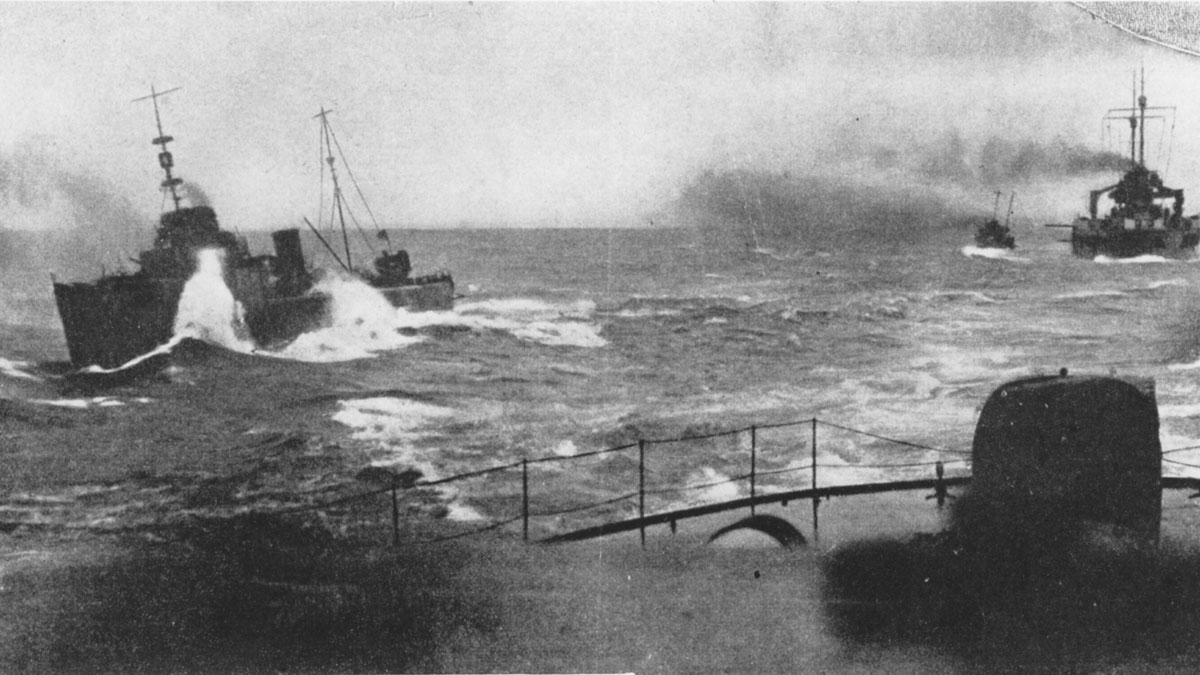Battle of Jutland: What happened and why was it important?
'Bloody and confusing' campaign had great significance in the outcome of the First World War

A free daily email with the biggest news stories of the day – and the best features from TheWeek.com
You are now subscribed
Your newsletter sign-up was successful
Members of the government and the royal family will today mark the centenary of the Battle of Jutland with a commemorative event on Orkney, joining descendants of those who fought in the battle for a service at St Magnus Cathedral in Kirkwall.
Fought over 36 hours on 31 May 1916, the battle was the only major campaign of the First World War to be carried out at sea - and the only time the German High Seas Fleet and the British Grand Fleet confronted each other.
What happened?
The Week
Escape your echo chamber. Get the facts behind the news, plus analysis from multiple perspectives.

Sign up for The Week's Free Newsletters
From our morning news briefing to a weekly Good News Newsletter, get the best of The Week delivered directly to your inbox.
From our morning news briefing to a weekly Good News Newsletter, get the best of The Week delivered directly to your inbox.
After the outbreak of the First World War in 1914, the Royal Navy began blockading Germany, which retaliated by sinking British ships on a prodigious scale.
In an attempt to alleviate the blockade, German ships tried to lure out the Royal Navy by attacking the coastal towns of Lowestoft and Yarmouth on the nights of 24 and 25 April 1916.
They also planned a surprise attack along the coast of Denmark, which was discovered by British intelligence and Admiral John Jellicoe ordered the UK fleet to sea on 31 May 1916.
The "confused and bloody" battle was fought off the coast of Denmark's Jutland peninsula, writes historian Louise Bruton of the British Library. In total, the British lost 14 ships and more than 6,000 men, while the Germans lost 1 ships and upwards of 2,500 men. However, that did not stop each side claiming victory.
A free daily email with the biggest news stories of the day – and the best features from TheWeek.com
What was its significance?
The battle was eventually seen as a "strategic victory for the Royal Navy", reports the BBC, as the British were able to maintain their blockade, which brought severe hardship to the German armed forces throughout the rest of the war.
For the Germans, it was a "strategic defeat of great consequence", writes Michael White in The Guardian. "As a New York newspaper explained to its readers, 'the German fleet has assaulted its jailer, but it is still in jail.'"
For health reasons, the Duke of Edinburgh will not be attending the centenary commemorations, although he has written a message on the Order of Service.
"War may be senseless and the Battle of Jutland may have been inconclusive, but there can be no doubt that their sacrifice was not in vain," he says.
"Historians may differ in their opinions about who won and who lost, but the fact remains that the German High Seas Fleet was unable to effectively challenge the Royal Navy's dominance at sea for the rest of the war."
-
 How the FCC’s ‘equal time’ rule works
How the FCC’s ‘equal time’ rule worksIn the Spotlight The law is at the heart of the Colbert-CBS conflict
-
 What is the endgame in the DHS shutdown?
What is the endgame in the DHS shutdown?Today’s Big Question Democrats want to rein in ICE’s immigration crackdown
-
 ‘Poor time management isn’t just an inconvenience’
‘Poor time management isn’t just an inconvenience’Instant Opinion Opinion, comment and editorials of the day
-
 Epstein files topple law CEO, roil UK government
Epstein files topple law CEO, roil UK governmentSpeed Read Peter Mandelson, Britain’s former ambassador to the US, is caught up in the scandal
-
 Iran and US prepare to meet after skirmishes
Iran and US prepare to meet after skirmishesSpeed Read The incident comes amid heightened tensions in the Middle East
-
 Israel retrieves final hostage’s body from Gaza
Israel retrieves final hostage’s body from GazaSpeed Read The 24-year-old police officer was killed during the initial Hamas attack
-
 China’s Xi targets top general in growing purge
China’s Xi targets top general in growing purgeSpeed Read Zhang Youxia is being investigated over ‘grave violations’ of the law
-
 Panama and Canada are negotiating over a crucial copper mine
Panama and Canada are negotiating over a crucial copper mineIn the Spotlight Panama is set to make a final decision on the mine this summer
-
 Why Greenland’s natural resources are nearly impossible to mine
Why Greenland’s natural resources are nearly impossible to mineThe Explainer The country’s natural landscape makes the task extremely difficult
-
 Iran cuts internet as protests escalate
Iran cuts internet as protests escalateSpeed Reada Government buildings across the country have been set on fire
-
 US nabs ‘shadow’ tanker claimed by Russia
US nabs ‘shadow’ tanker claimed by RussiaSpeed Read The ship was one of two vessels seized by the US military